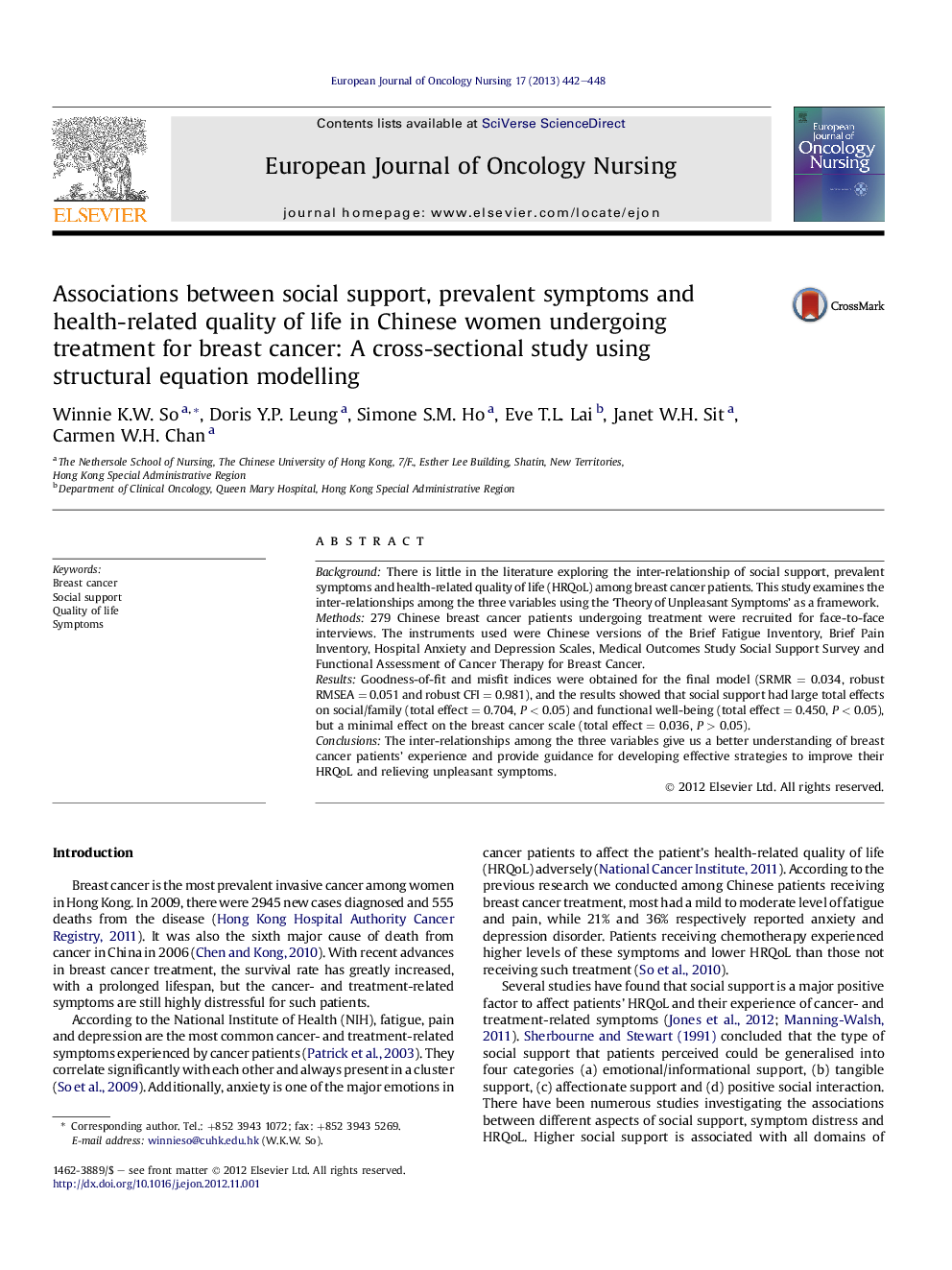| Article ID | Journal | Published Year | Pages | File Type |
|---|---|---|---|---|
| 2649476 | European Journal of Oncology Nursing | 2013 | 7 Pages |
BackgroundThere is little in the literature exploring the inter-relationship of social support, prevalent symptoms and health-related quality of life (HRQoL) among breast cancer patients. This study examines the inter-relationships among the three variables using the ‘Theory of Unpleasant Symptoms’ as a framework.Methods279 Chinese breast cancer patients undergoing treatment were recruited for face-to-face interviews. The instruments used were Chinese versions of the Brief Fatigue Inventory, Brief Pain Inventory, Hospital Anxiety and Depression Scales, Medical Outcomes Study Social Support Survey and Functional Assessment of Cancer Therapy for Breast Cancer.ResultsGoodness-of-fit and misfit indices were obtained for the final model (SRMR = 0.034, robust RMSEA = 0.051 and robust CFI = 0.981), and the results showed that social support had large total effects on social/family (total effect = 0.704, P < 0.05) and functional well-being (total effect = 0.450, P < 0.05), but a minimal effect on the breast cancer scale (total effect = 0.036, P > 0.05).ConclusionsThe inter-relationships among the three variables give us a better understanding of breast cancer patients' experience and provide guidance for developing effective strategies to improve their HRQoL and relieving unpleasant symptoms.
